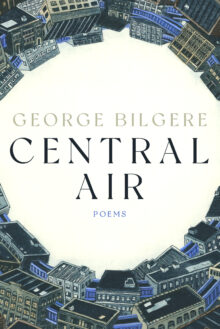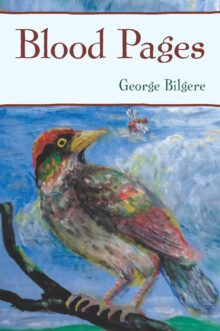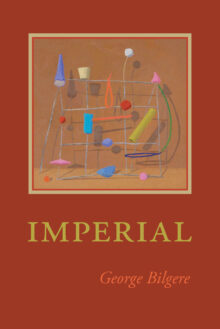
George Bilgere
George Bilgere is professor of English literature at John Carroll University in Cleveland, Ohio. He is the author of seven collections of poetry and has received grants and awards from the Fulbright Foundation, the Pushcart Foundation, the National Endowment for the Arts, the Witter Bynner Foundation through the Library of Congress, the May Swenson Poetry Award, the Society of Midland Authors award, and the Cleveland Arts Prize. He spends his summers in Berlin, Germany, but lives during the academic year in Cleveland with his wife and two sons.
Central Air
Poems
With humor and compassion, George Bilgere continues his explorations of the human predicament. The settings of these poems range from Cleveland to Berlin, from childhood to old age. Bilgere’s subject, in the largest sense, is America, in all its craziness, its haunted past, its imperiled future. But what really centers this book is the English language itself, which these poems endeavor to renew, reinvent, and reinvigorate.
Blood Pages
In Blood Pages George Bilgere continues his exploration of the joys and absurdities of being middle-aged and middle-class in the Midwest. OK, maybe he’s a bit beyond middle-aged at this point, and his rueful awareness of this makes these poems even more darkly hilarious, more deeply aware of the feckless and baffling times our nation has stumbled into. And the fact that Bilgere, relatively late in life, is now the father of two young boys brings a fresh sense of urgency to his work. Blood Pages is a guidebook to the fears, foibles, and beauties of our lovely old country as it makes its blundering, tentative way into the new century.
Imperial
In Imperial, George Bilgere’s sixth collection of poetry, he continues his exploration of the beauties, mysteries, and absurdities of being middle-aged and middle-class in mid-America. In poems that range from the Cold War anxieties of the 1950s to the perils and predicaments of an aging Boomer in a post-9/11 world, Bilgere’s rueful humor and slippery syntax become a trapdoor that at any moment can plunge the reader into the abyss. In Bilgere’s world a yo-yo morphs into an emblem for the atomic bomb. A spot of cancer flames into the Vietnam War. And the death of a baseball player reminds us, in this age of disbelief, of the importance—the necessity—of myth.



